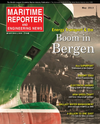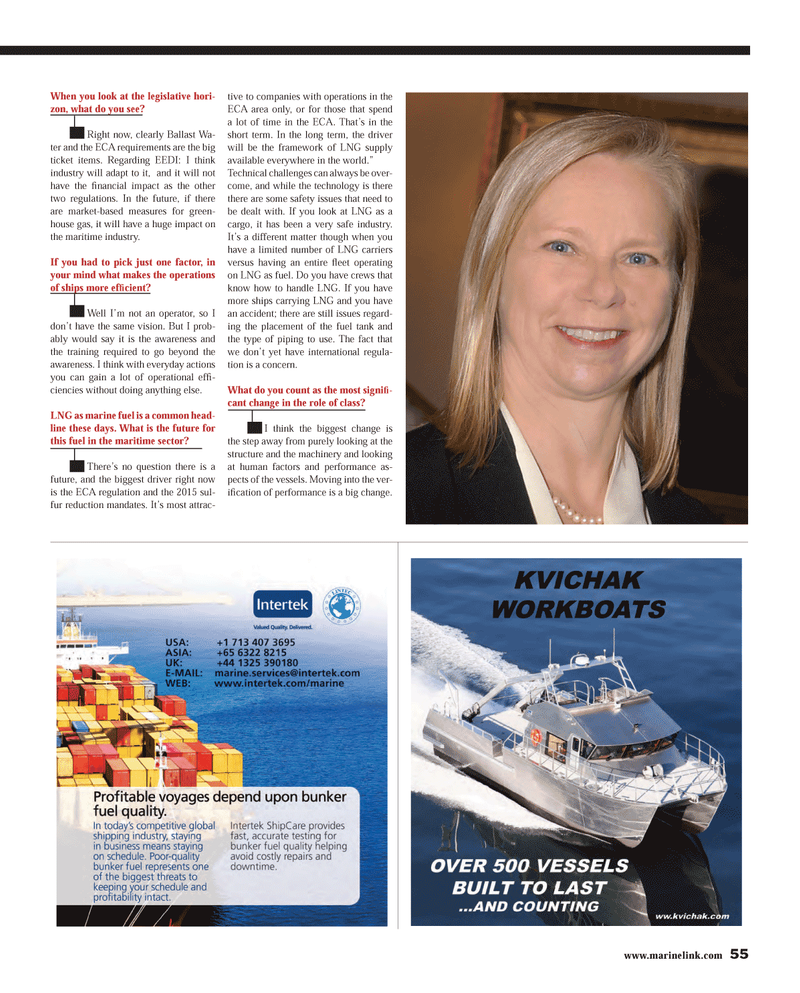
Page 55: of Maritime Reporter Magazine (May 2013)
Energy Production & Transportation
Read this page in Pdf, Flash or Html5 edition of May 2013 Maritime Reporter Magazine
www.marinelink.com 55When you look at the legislative hori-zon, what do you see? Right now, clearly Ballast Wa- ter and the ECA requirements are the big ticket items. Regarding EEDI: I think industry will adapt to it, and it will not have the Þ nancial impact as the other two regulations. In the future, if there are market-based measures for green-house gas, it will have a huge impact on the maritime industry. If you had to pick just one factor, in your mind what makes the operations of ships more ef Þ cient? Well I?m not an operator, so I don?t have the same vision. But I prob- ably would say it is the awareness and the training required to go beyond the awareness. I think with everyday actions you can gain a lot of operational efÞ -ciencies without doing anything else.LNG as marine fuel is a common head-line these days. What is the future for this fuel in the maritime sector? There?s no question there is a future, and the biggest driver right now is the ECA regulation and the 2015 sul-fur reduction mandates. It?s most attrac- tive to companies with operations in the ECA area only, or for those that spend a lot of time in the ECA. That?s in the short term. In the long term, the driver will be the framework of LNG supply available everywhere in the world.?Technical challenges can always be over- come, and while the technology is there there are some safety issues that need to be dealt with. If you look at LNG as a cargo, it has been a very safe industry. It?s a different matter though when you have a limited number of LNG carriers versus having an entire ß eet operating on LNG as fuel. Do you have crews that know how to handle LNG. If you have more ships carrying LNG and you have an accident; there are still issues regard-ing the placement of the fuel tank and the type of piping to use. The fact that we don?t yet have international regula- tion is a concern.What do you count as the most signiÞ -cant change in the role of class? I think the biggest change is the step away from purely looking at the structure and the machinery and looking at human factors and performance as-pects of the vessels. Moving into the ver-iÞ cation of performance is a big change. MR #5 (50-57).indd 55MR #5 (50-57).indd 555/3/2013 9:49:57 AM5/3/2013 9:49:57 AM

 54
54

 56
56
